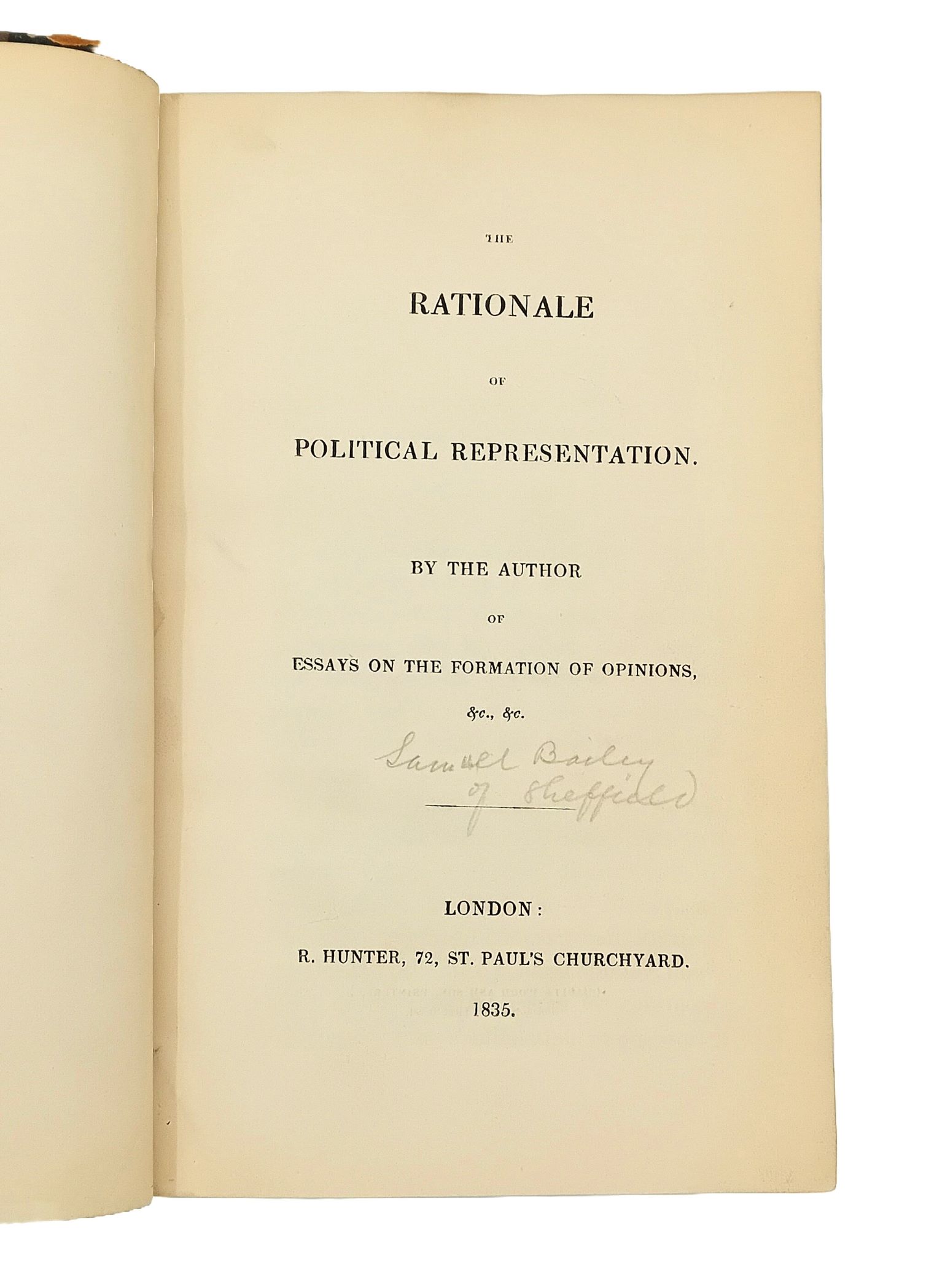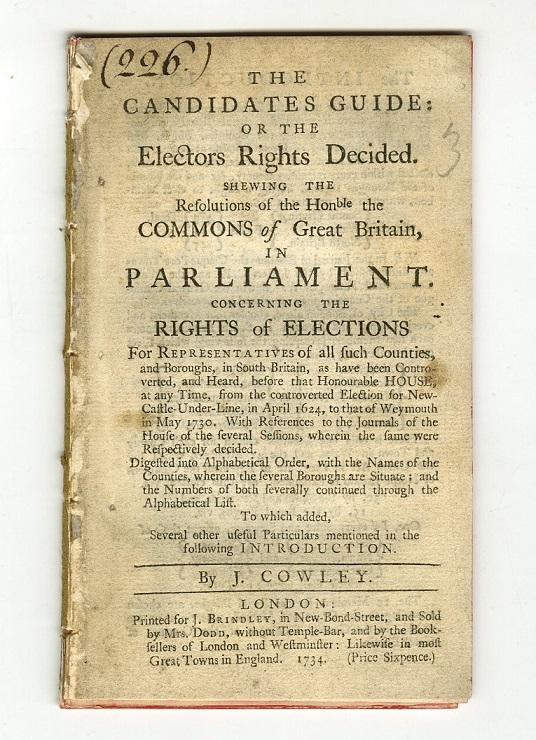

[BAILEY, Samuel]
The Rationale of Political Representation. By the author of essays on the formation of opinions, &c., &c.
London: R. Hunter. 1835.
8vo, pp. vi, [2, advertisement], 436; a very good copy in contemporary calf-backed marbled boards, spine decorated gilt in compartments; upper board loose, extremities rubbed; French armorial bookplate to front pastedown.

Added to your basket:
The Rationale of Political Representation. By the author of essays on the formation of opinions, &c., &c.
First edition. The Rationale… examines many aspects of political representation, from chapters on the ‘Grounds of Preference for a Representative Government’ to a ‘Discussion of Changes in Political Institutions’. Alongside this extended treatise there are two further supplementary essays: on political equality and on rights. Referencing the ‘successful operation of representative governments’ in England and ‘in a still more striking manner’ in America, Bailey argues that this state will naturally extend over many other countries (p. 1). Thus, Bailey argues that his discussion of the objects and capabilities of representative government has great merit: ‘When it is considered what an important influence political representation is likely to have on the future destiny of the world, every one will perceive how desirable it is, that the system should be thoroughly examined, its merits placed on their proper ground, and the reasons for its various arrangements clearly exhibited’ (p. 11). This work was later reviewed by John Stuart Mill in Essays on Politics and Society. The supplementary essay on political equality argues that ‘political power can be properly conferred for no other purpose than the common weal’ and his work ‘On Rights’ discusses the way that rights have been incorrectly defined by Burke and Bentham: ‘the world is yet very far from being aware of the immense importance of precise phraseology.’ (p. 418). ‘The politics displayed in these works are those of a moderate utilitarian radical with a strong objection to state interference.’ (DNB).

